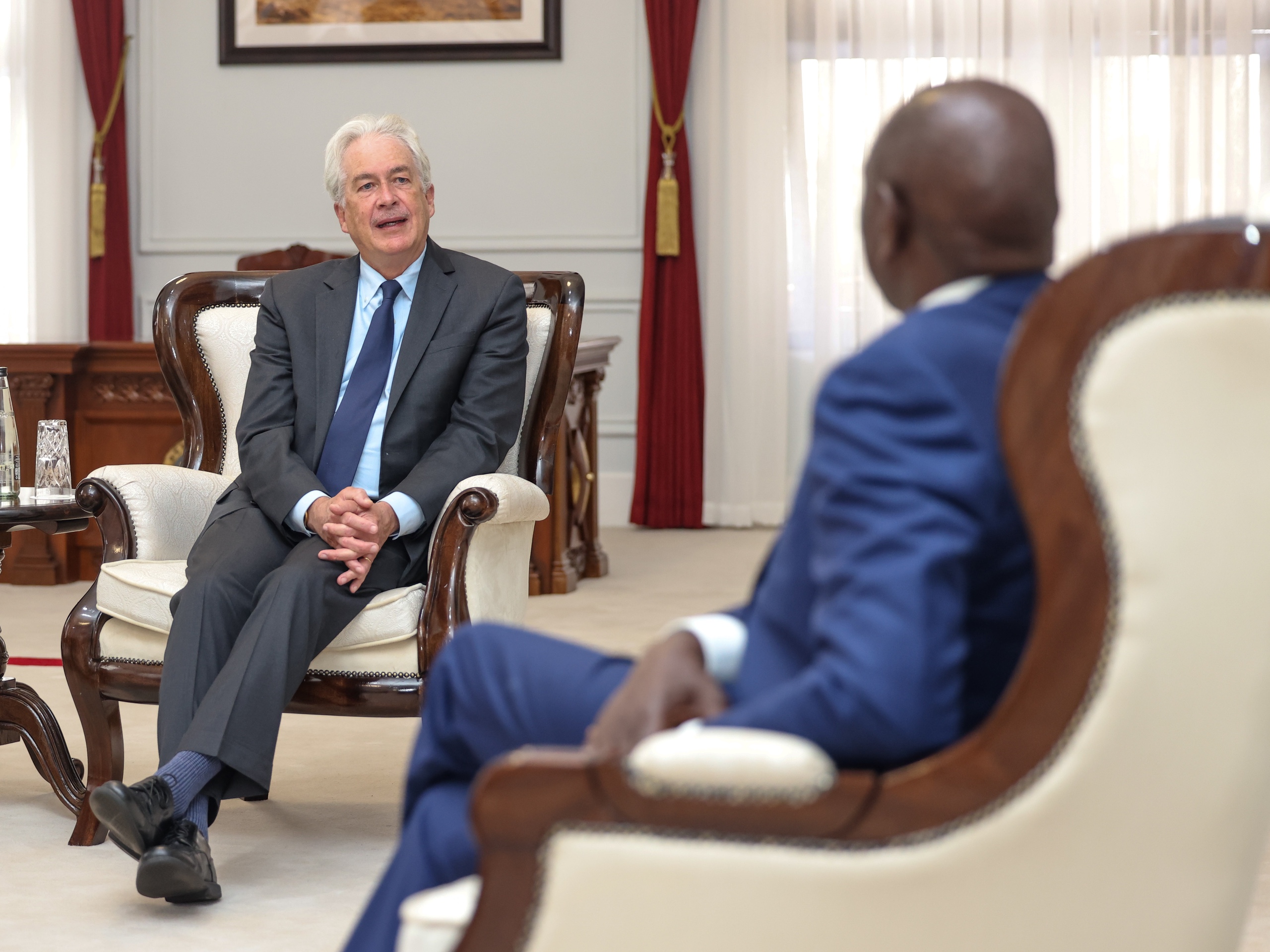Kenya’s President William Ruto’s has revealed that he held consultations with the United States of America Central Intelligence Agency (CIA) Director William J. Burns at State House, Nairobi.
The meeting took place on Monday according to a post on Ruto’s X account.

There could be several reasons why Kenya’s President might meet with the Director of the Central Intelligence Agency (CIA). Here are some possible reasons:
Security and Counterterrorism Cooperation:
The meeting could revolve around discussions on regional security and counterterrorism efforts. Kenya, like many other countries, may collaborate with intelligence agencies to address common security threats in the region.
Intelligence Sharing:
Countries often share intelligence information to counter shared threats, such as transnational crime, terrorism, or other security concerns. The meeting could involve discussions on the exchange of intelligence between Kenya and the CIA.
Bilateral Relations:
The meeting might be part of broader diplomatic efforts to strengthen bilateral relations between Kenya and the United States. Intelligence cooperation can be a crucial aspect of diplomatic relationships.
Economic and Political Discussions:
Discussions might extend beyond security matters and include economic and political topics. Intelligence agencies sometimes play a role in providing insights into economic trends, political stability, and other factors that could affect bilateral relations.
Regional Stability:
The meeting could address broader regional stability issues, including conflicts in neighboring countries, humanitarian concerns, or other challenges that might have an impact on the stability of East Africa.
Crisis Management:
If there is a crisis in the region, such as a conflict, natural disaster, or public health emergency, intelligence agencies can provide valuable information for effective crisis management.
Cooperation on Global Issues:
The meeting may involve discussions on global issues where both Kenya and the United States have shared interests, such as climate change, health pandemics, or efforts to combat organized crime.
Bilateral Agreements:
The leaders might discuss the progress or negotiation of specific bilateral agreements that involve intelligence sharing or cooperation on matters of mutual interest.
Meetings between heads of state and intelligence officials are typically held behind closed doors due to the sensitive nature of the discussions. The exact details of such meetings are often not disclosed to the public.